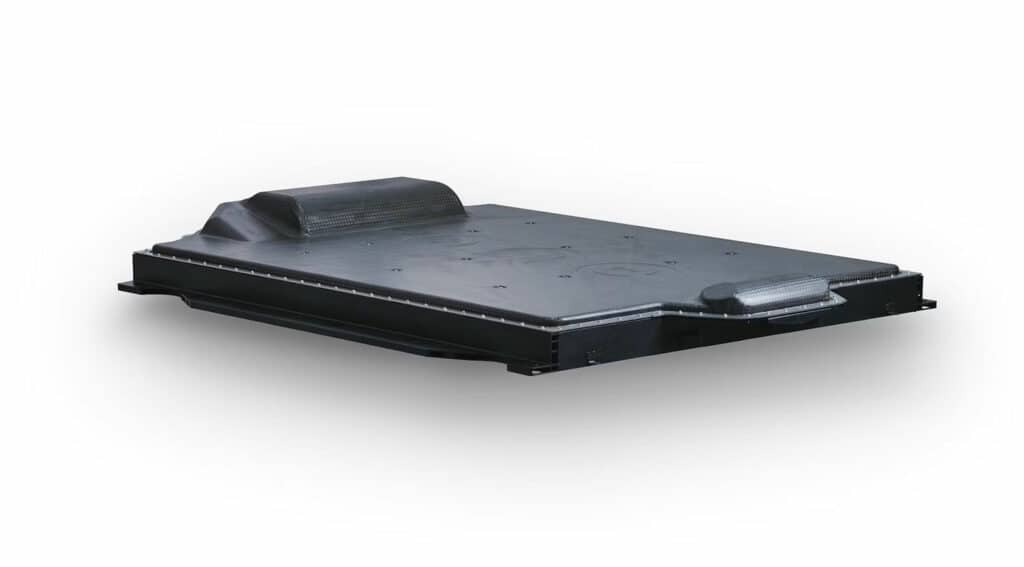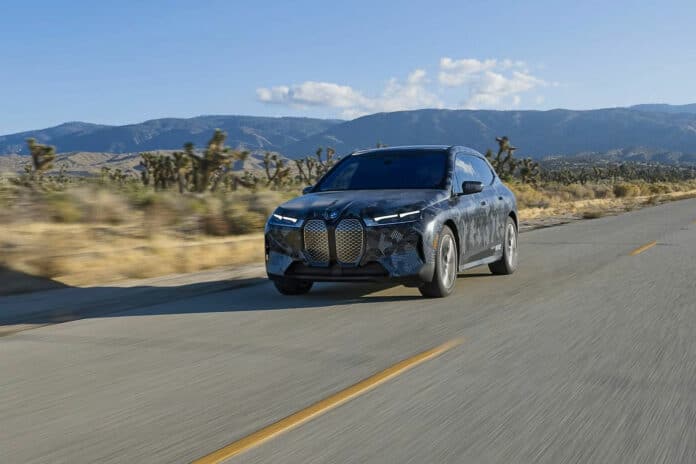Michigan-based battery startup Our Next Energy (ONE) has made a significant breakthrough in the field of energy storage technology. The company has announced that its Gemini dual-chemistry battery has achieved an impressive 608.1 miles (978.6 km) of range in a BMW iX on a single charge. This milestone was achieved using a WLTP test cycle, which is the European standard for determining the range of fully electric vehicles.
Gemini’s unique dual-chemistry architecture is designed to provide maximum range and sustainability. Gemini is capable of providing 450 Wh/L of energy density at a system level and 185+ kWh of energy in the space allotted to typical passenger EV packs.
It features two different cell types that use different battery chemistries. Lithium iron phosphate (LFP) cells power the motor and provide enough energy to meet the demands of 99% of daily trips with a range of 150 miles (241 km) or less.
For longer road trips, the Gemini uses high energy density anode-free (AF) cells that serve as range extenders for an additional 450 miles (724 km) of range by transferring power through ONE’s proprietary high-efficiency DC-to-DC converter. The energy density of these AF cells is just over 1,000 Wh/L, which is more than double the energy density of the LFP cells at 441 Wh/L.
The two cells work together, coupled by the DC-to-DC converter, to offer more than 600 miles (965 km) on a single charge. What’s more, Gemini is the longest-range EV battery pack that can fit in the typical 300-400 liter space available in a vehicle for energy storage.

Apart from the extended range, ONE’s Gemini technology also reduces the use of lithium by up to 20%, graphite by 60%, nickel usage by 75%, and minimizes the use of nickel and cobalt. This makes it a more sustainable and cost-effective energy storage technology that can lower the environmental impact and cost of EVs.
“Electric vehicles will achieve mass adoption when they offer enough range that people will feel comfortable having an EV as their only vehicle,” said Mujeeb Ijaz, CEO & founder of ONE. “The Gemini battery has proven it can double the range of EVs and break down the biggest barrier to electrification.”
Last year, ONE signed an agreement with BMW Group to demonstrate the Gemini battery technology in a less aerodynamic electric vehicle. The BMW iX is a high-performance Sports Activity Vehicle that has a WLTP range between 257 and 392 miles (414 and 630 km) depending on the battery size, motors, and wheels installed.
The initial test results showed that a BMW iX equipped with a prototype Gemini battery was able to travel for just over the 600 miles (966 km) target on a charge, thanks to the Gemini’s dual-chemistry cell split.
Now that ONE has successfully demonstrated the Gemini technology, the company will focus on further refinements to the system to prepare for commercialization. These include improving the DC-to-DC converter efficiency, developing enhanced control algorithms to optimize usage of the range extender cells, and conducting further battery validation and cell development. All these steps are intended to further improve the range and to prepare for the development of an A-sample for a full production program.
ONE plans to increase its LFP cell production in 2024 and aims to achieve a capacity of 20 GWh from its new factory in Van Buren, Michigan. Additionally, the company is working towards completing the development of its low-cost manganese cells, with the goal of being production-ready for the Gemini pack by around 2026.
